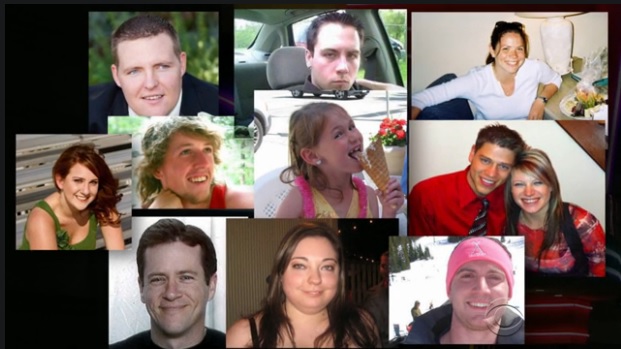CENTENNIAL, CO (CBS) – A jury has found Colorado theater shooter James Holmes guilty on the first count of first-degree murder in the July 2012 shooting that killed 12 people and wounded dozens. It’s among the first verdicts of 165 counts to be announced in the case against Holmes.
The jury made its decision on Thursday after deliberating for a day and a half.

Holmes, 27, pleaded not guilty by reason of insanity in the 2012 shootings that killed 12 people and wounded 70 others.
The verdict comes nearly three years to the day that Holmes slipped into a darkened midnight premiere of the Batman movie “The Dark Knight Rises” and opened fire. His attorneys argued that he was in the grips of a psychotic episode.
In closing arguments Tuesday, District Attorney George Brauchler never referred to Holmes by name, CBS News correspondent Barry Petersen reports.
“This guy walked into that theater and tried to murder everyone in it,” Brauchler told jurors. “That guy was sane beyond a reasonable doubt, and he needs to be held accountable for what he did.”
Defense attorney Daniel King insisted Holmes did not know right from wrong, the key in Colorado for being not guilty by reason of insanity.
“The evidence is clear that he could not control his thoughts, that he could not control his actions and he could not control his perceptions,” King told jurors.
Jurors heard nearly three months of testimony, including heartbreaking and sometimes gruesome stories from more than 70 survivors who took the stand.
Prosecutors focused on the findings of two state-appointed forensic psychiatrists who examined Holmes months and years after the shooting and found him severely mentally ill yet capable of knowing right from wrong and therefore legally sane under Colorado law.
Dozens of investigators testified about the carnage Holmes inflicted and how he rigged his apartment into an elaborate booby trap he hoped would explode and divert first responders from the Aurora theater as he set about the July 20, 2012, attack.
Prosecutors honed in on Holmes’ elaborate planning of the massacre. They showed jurors a spiral notebook in which Holmes listed what weapons to buy, which auditoriums in the theater complex would allow for the most casualties, and even an estimated emergency response time to the theater.
Defense attorneys portrayed Holmes as a struggling neuroscience graduate student so addled by mental illness that he was unable to tell right from wrong at the time of the shootings.
They said he suffered schizophrenia, and they called two doctors who said Holmes was in the grips of a psychotic episode when he acted on delusions that propelled him to kill. They called a far shorter list of witnesses, such as doctors and jail guards, who described Holmes’ bizarre behavior before and after the attack.
The trial will now enter a sentencing phase in which the jurors will hear testimony and decide whether he should be sent to prison for life without the possibility of parole or sentenced to death.



